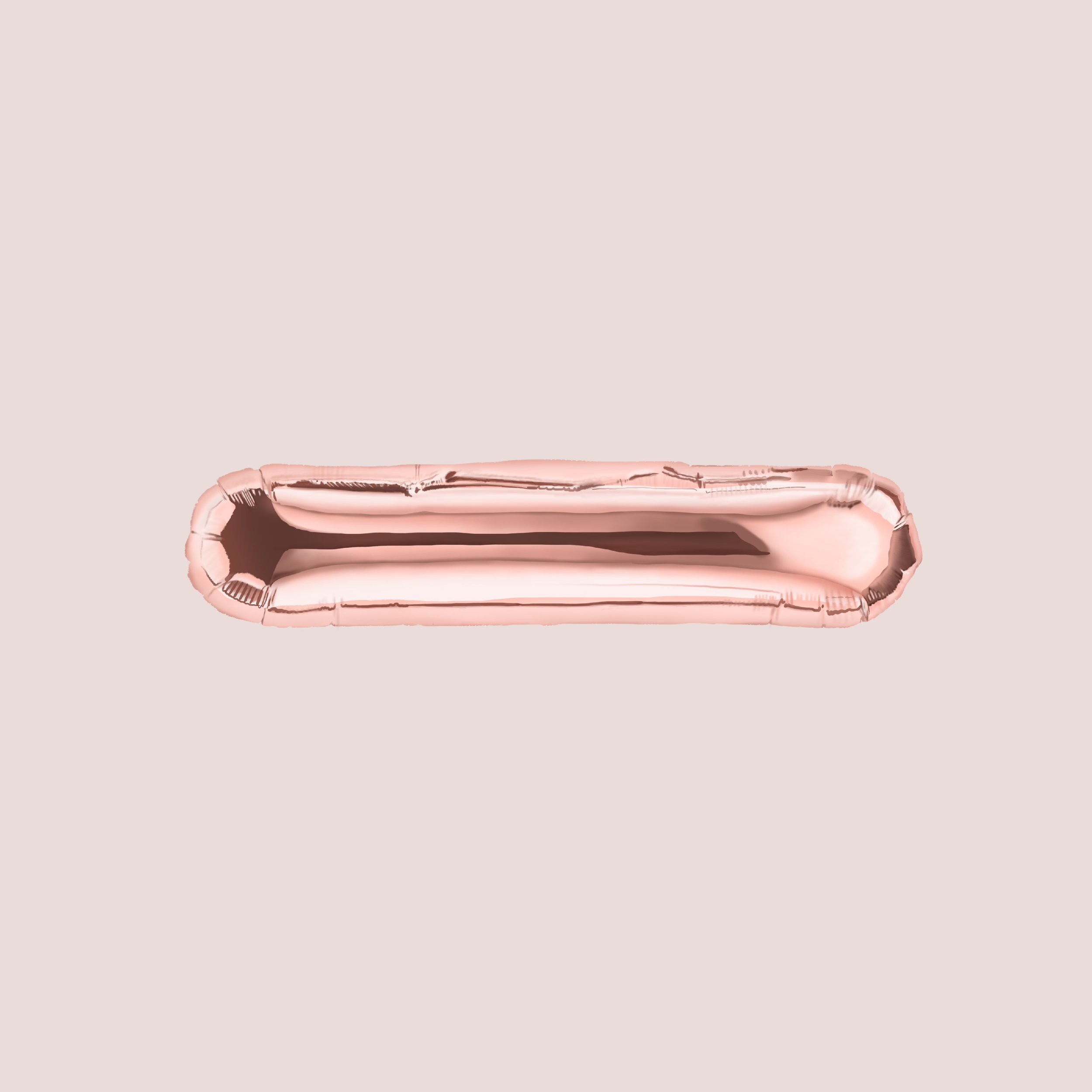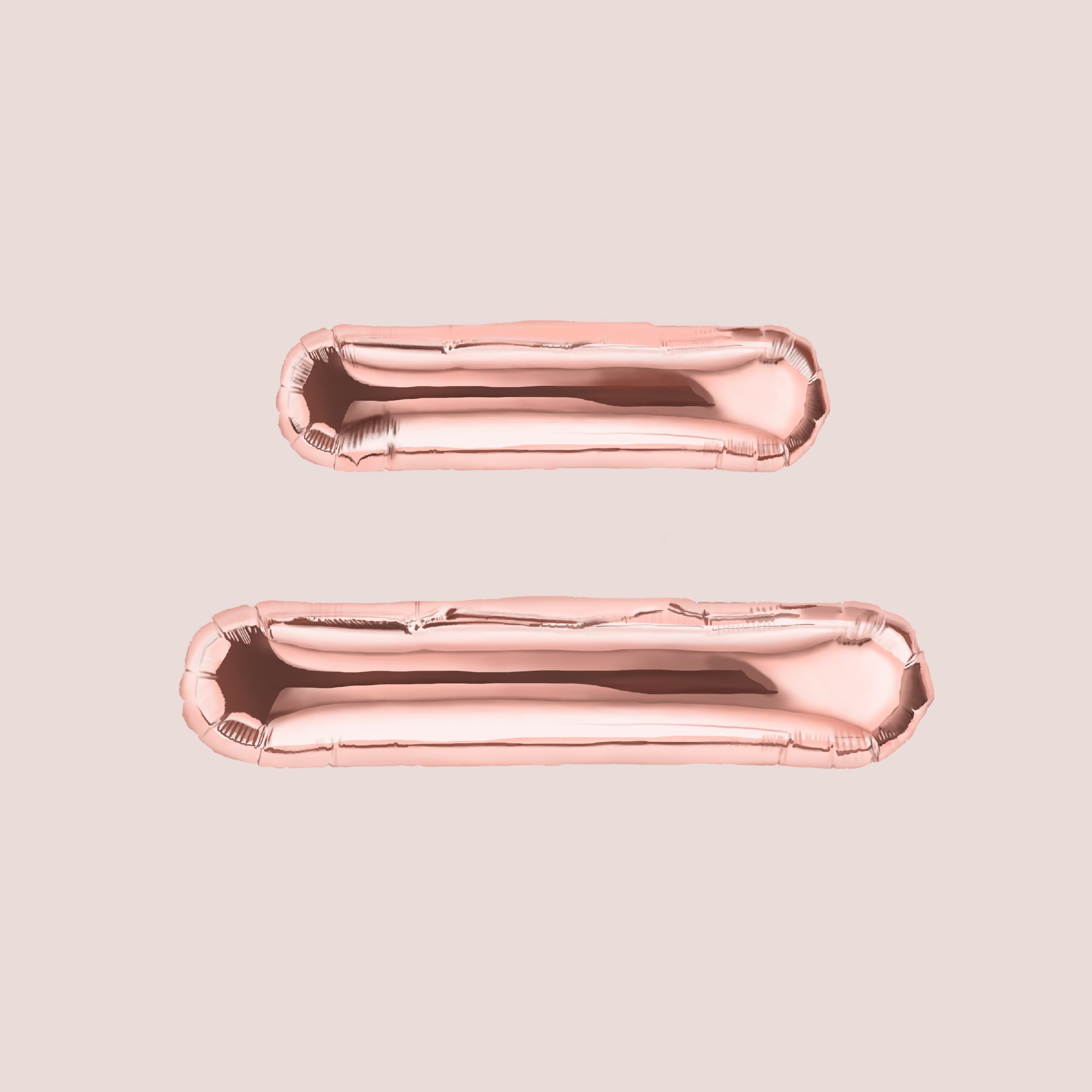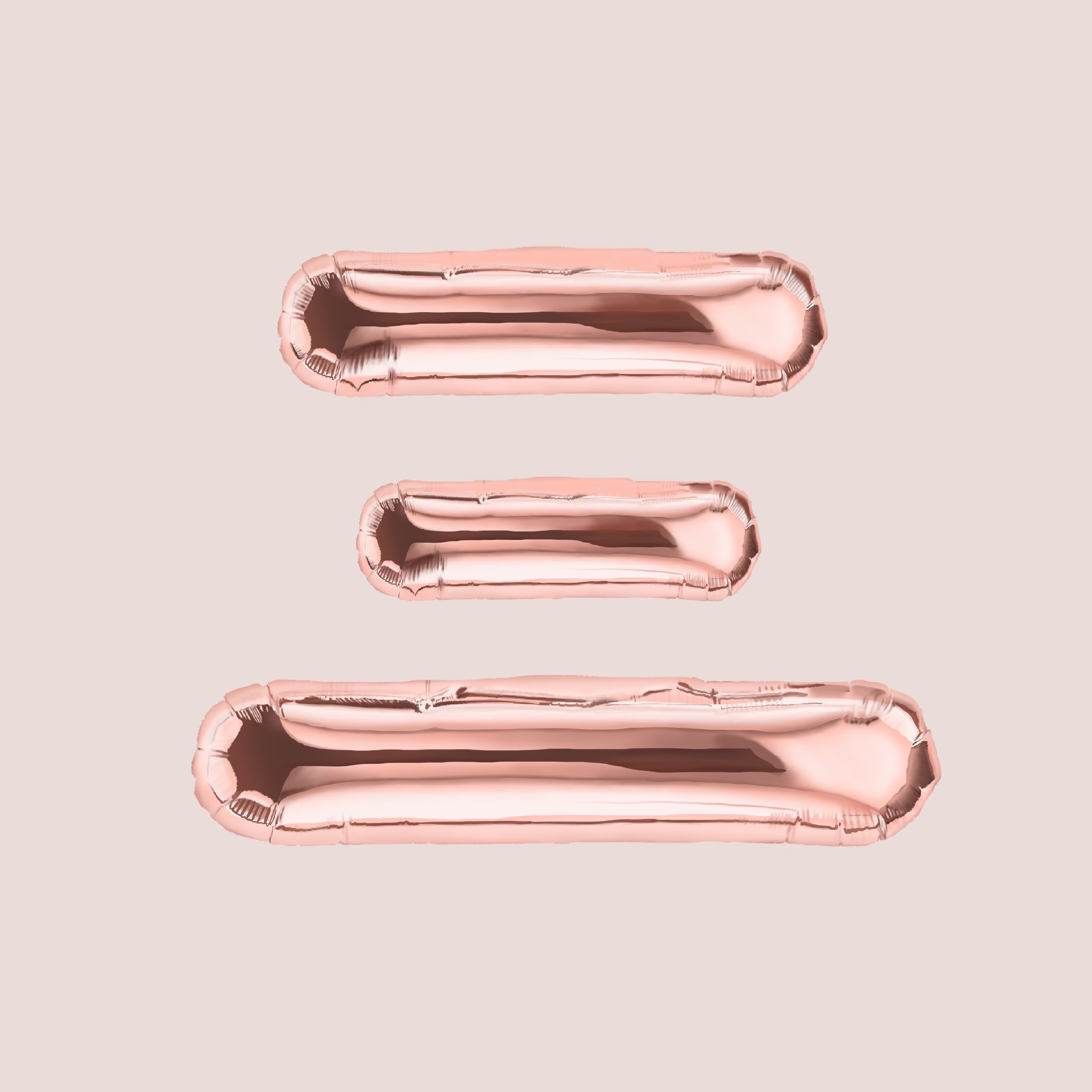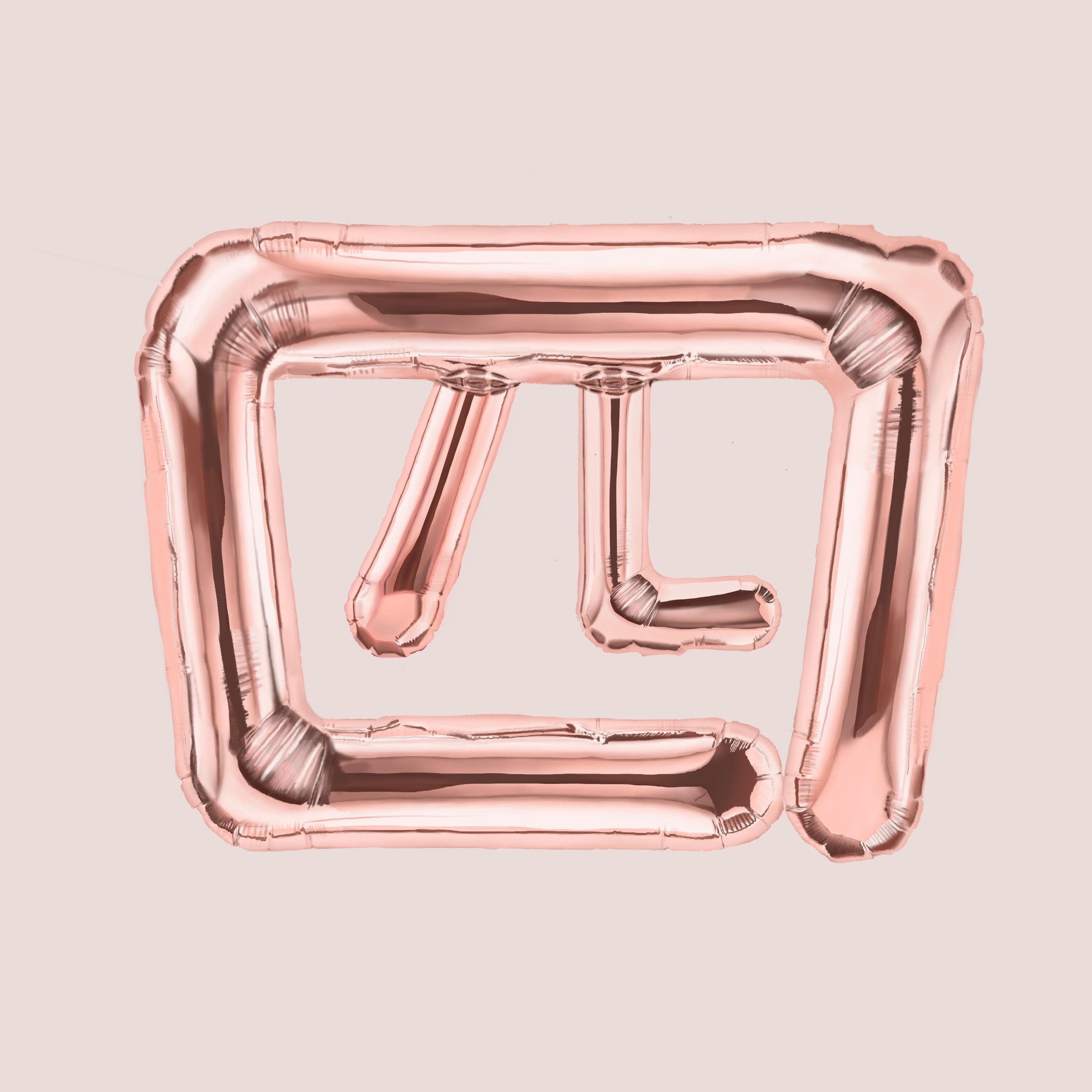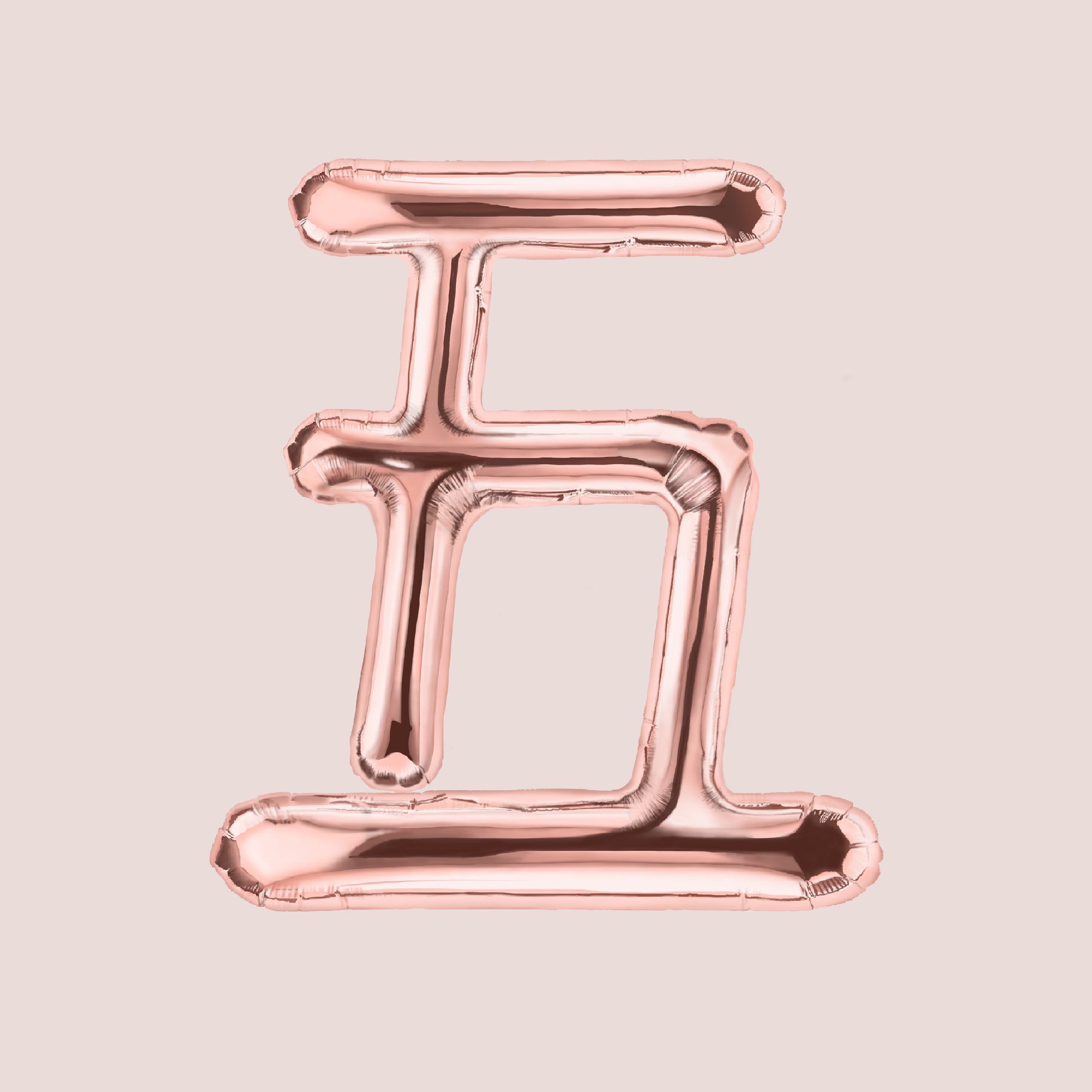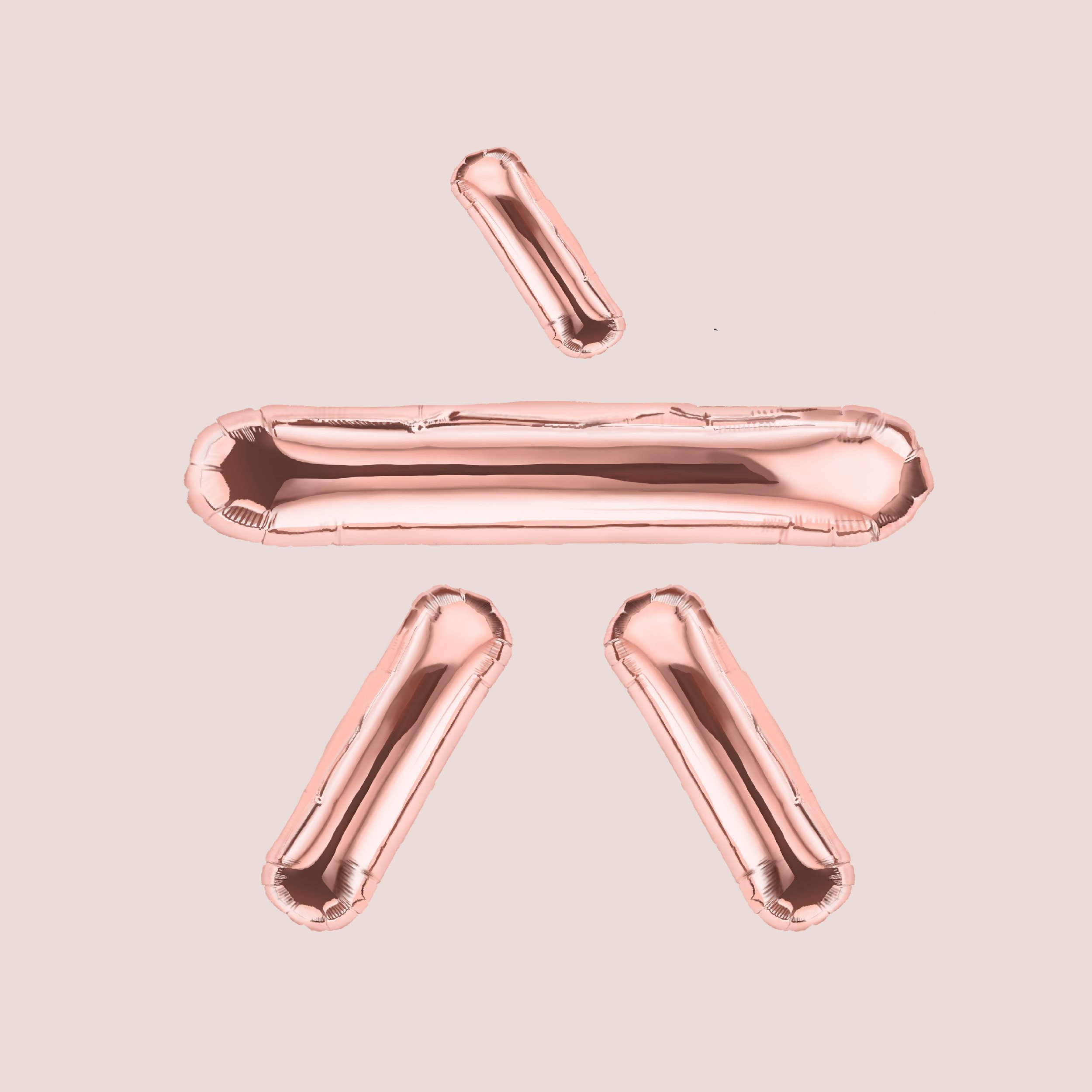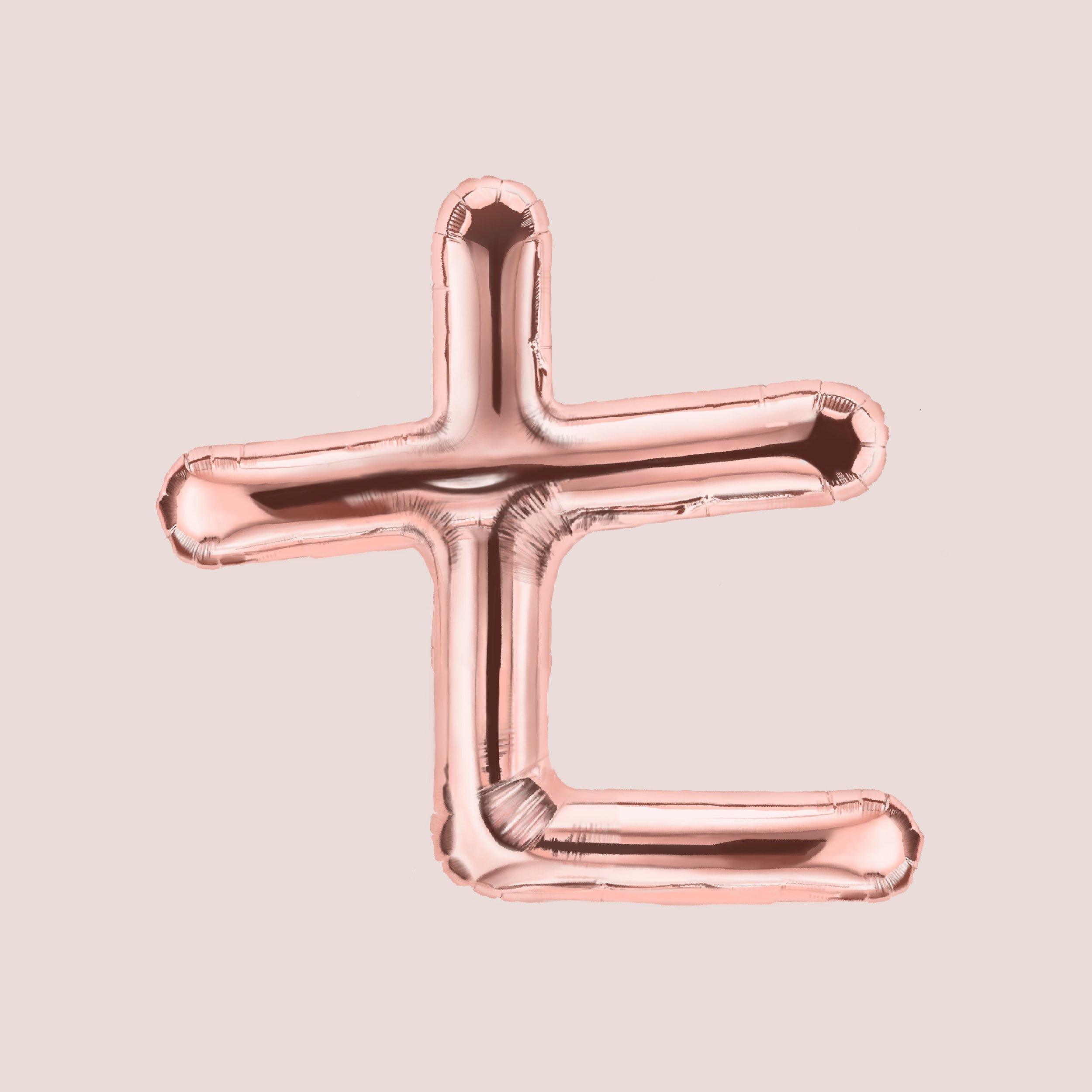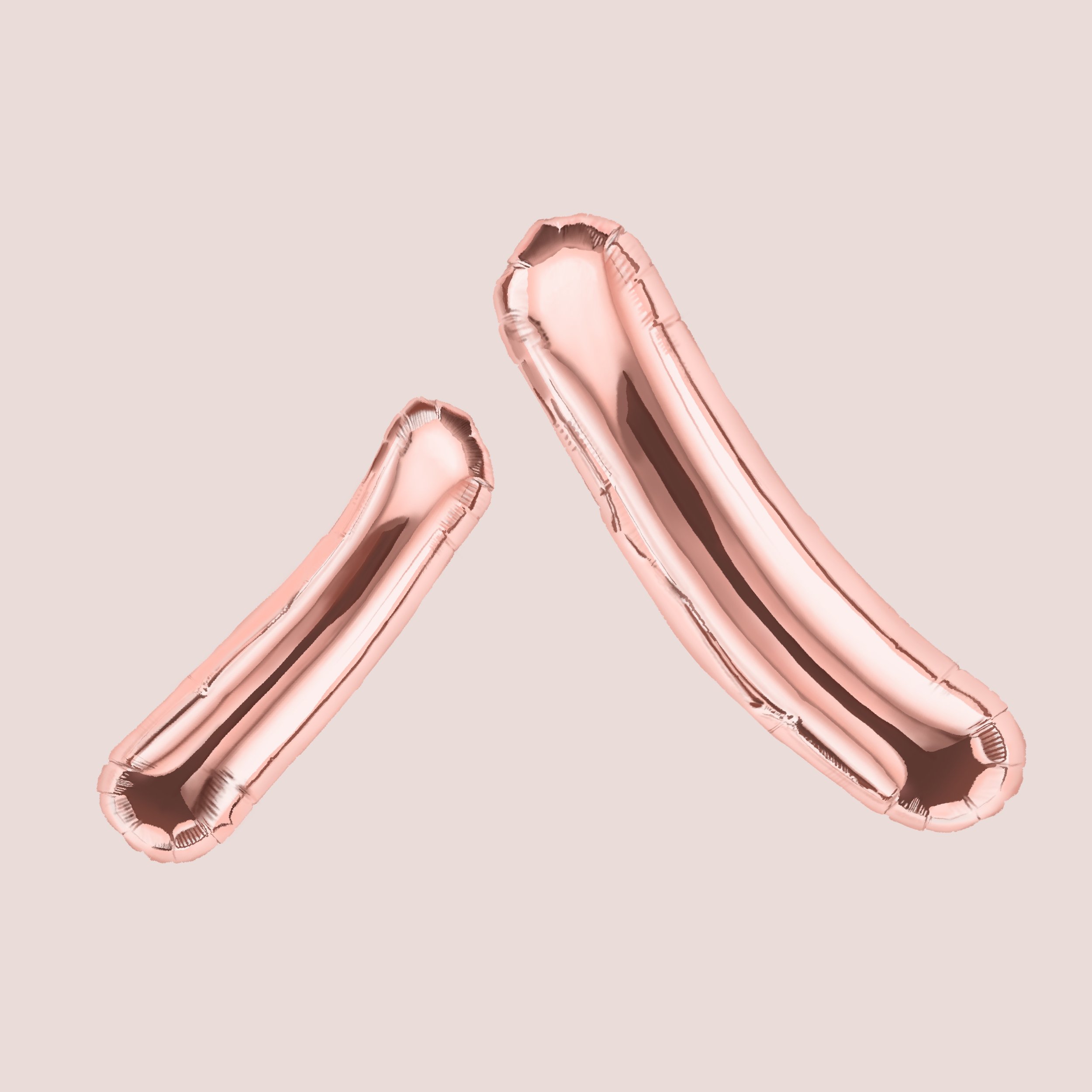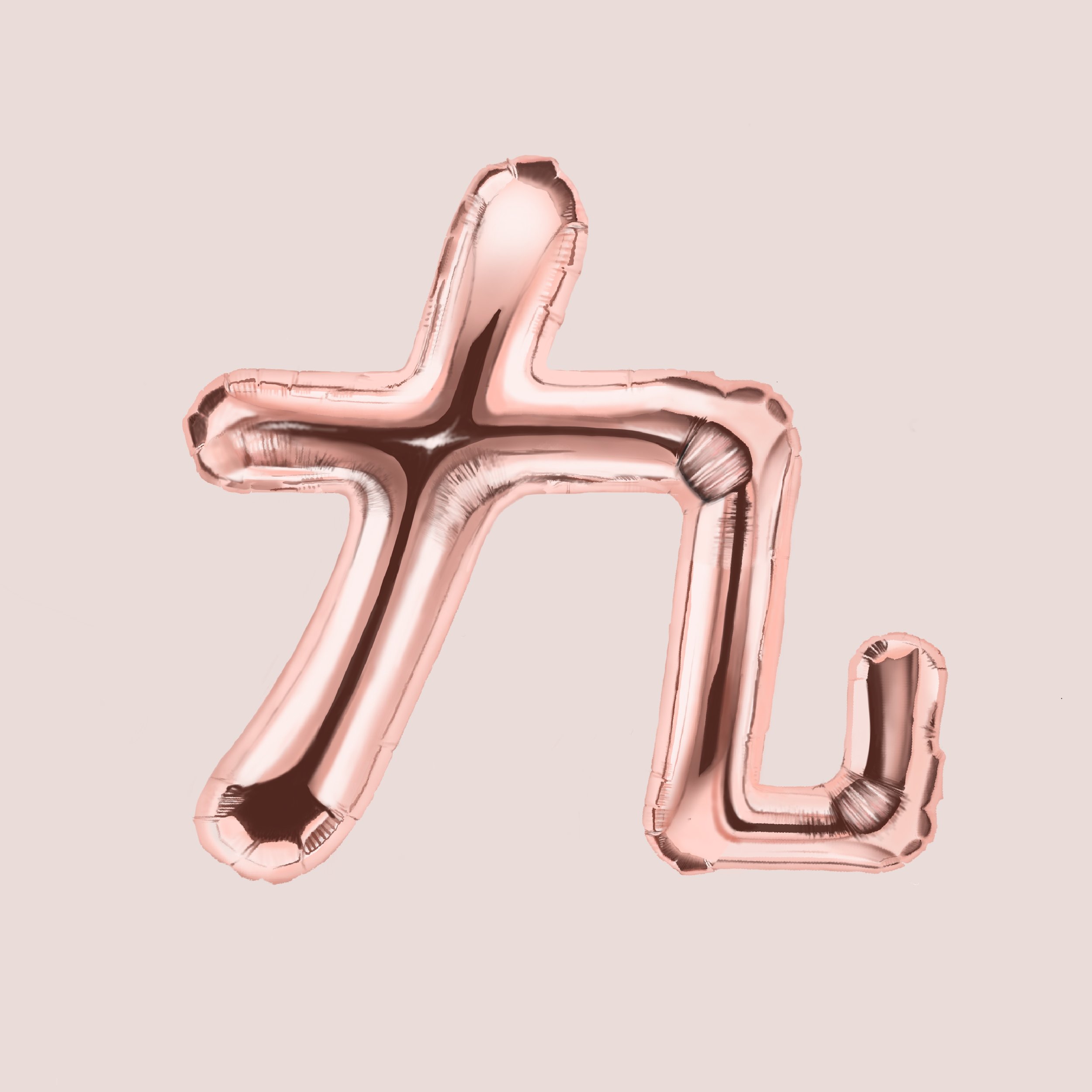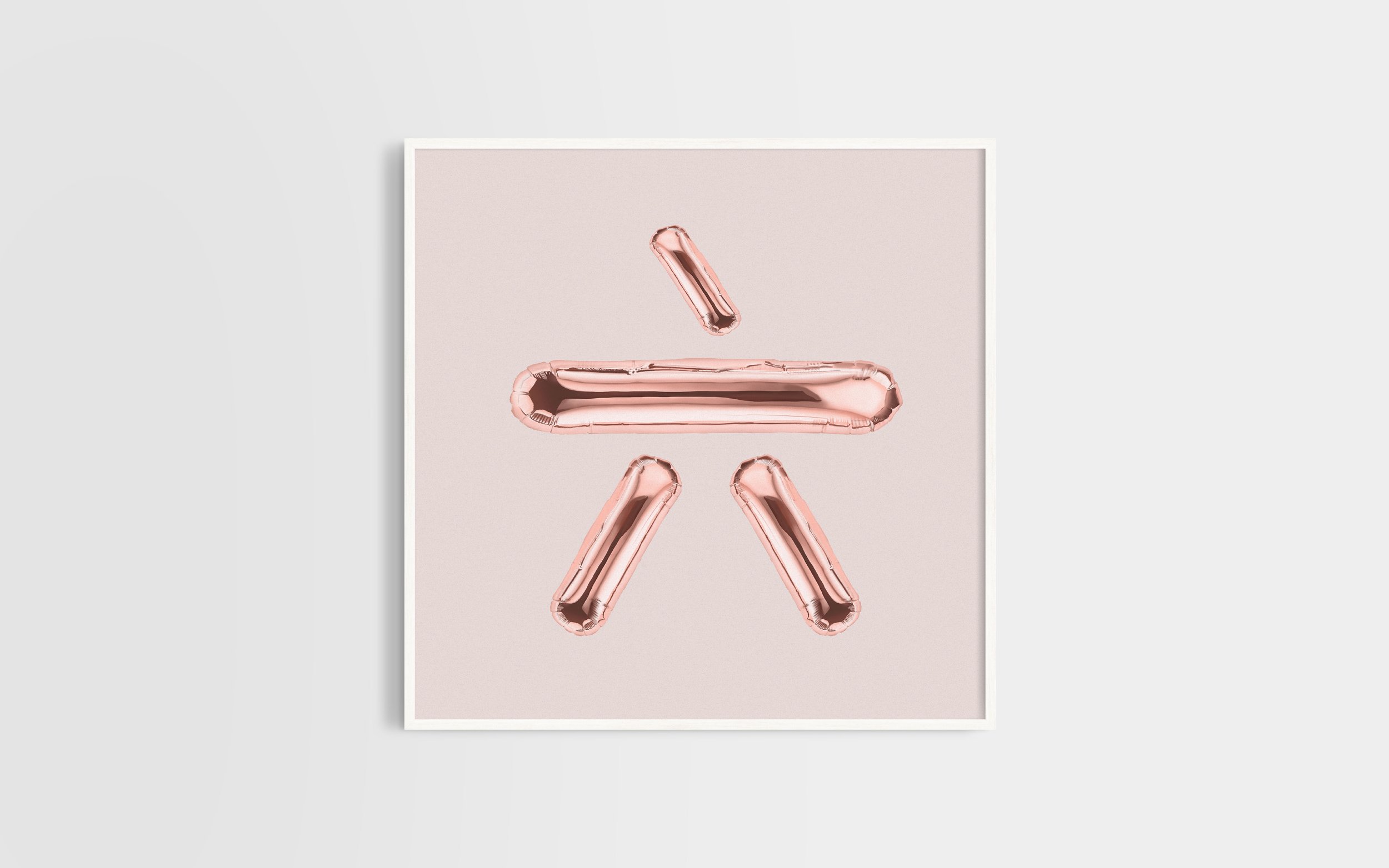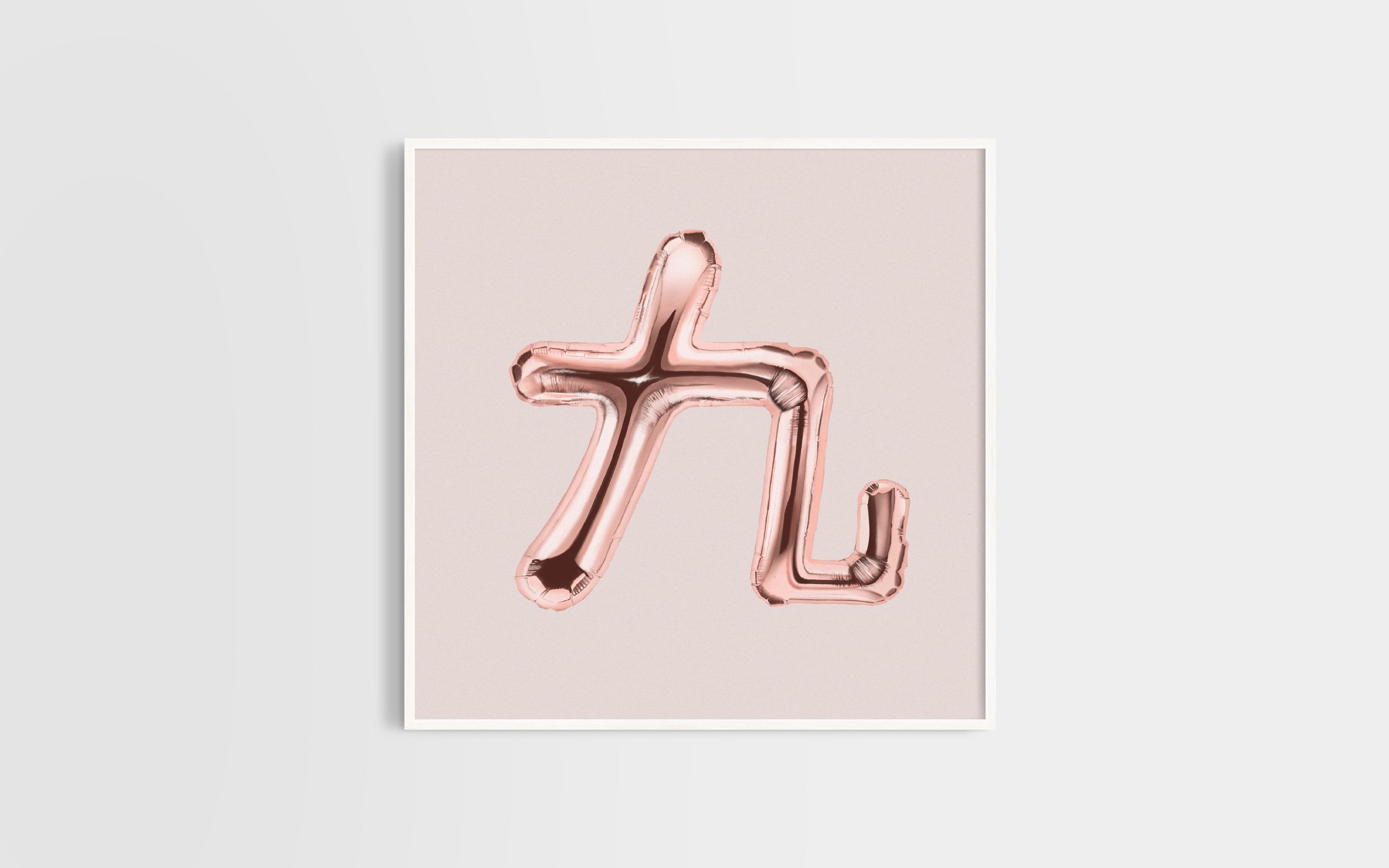Chinese Number Balloons and Numerology
Digital Illustrations & Personal Project, 2019
This was a personal project I did to continue learning the iPad and I had the random idea to explore Chinese numerology while drawing numbers in Chinese as rose gold balloons. I remember that while my parents aren’t superstitious people, they definitely ascribe to auspicious numbers in East Asian culture, particularly 6, 8, and 9 since they had O’s in them to signify fortune. We got a new license plate for one of our cars, and my parents both commented at separate times about how great it was that there were so many 8’s in it.
The more I read up on Chinese numerology, I thought it was interesting how a lot of it ties into the larger belief that the universe is based on certain numbers and mathematical principles. Legend has it that Emperor Fu Shi (China’s first emperor) created numerology and the 3x3 Lo Shu grid (where every row totals 15), which led to the discovery of feng shui and Chinese astrology. The meanings behind the numbers are also often based on the sounds the number makes when said aloud.
Truthfully, in terms of execution, this project was a lot of work, but I’m glad I stuck with it to finish the series, while also finding a unique way to learn and share more about Chinese and Taiwanese culture with others. Continue reading below for a deeper dive on the meanings behind each of the numbers I drew!
Note: Apologies in advance to weird font formatting with some of the accents! My current font choice doesn’t support certain accents over certain vowels. 🤷🏻♀️
One
一. Yī.
The simplest number with a complex cultural meaning in Chinese culture. It can mean the beginning, the origin, the whole. It could also mean first and winner, like it does in Western culture.
Two
二. Èr.
Two is the smallest even number, usually meaning "double" and “again”. It's a lucky number in Chinese culture, because "good things come in pairs". You need a final pair in your hand (🀄️🀄️) to win Taiwanese mahjong too. It’s also common to repeat characters, like 喜 (xǐ), which means "joy", to form other character like 囍 (xǐ), which literally means "double happiness".
Three
三. Sān.
Three is homophones with 生 (shēng), meaning to live or to give life, so it's a lucky number. Groups of 3 in Chinese culture are considered lucky since it signifies more than two, meaning you're in the "many" and "several" territory. There are the three essential values of Confucianism (filial piety, humaneness, and ritual) and the three jewels in Buddhism towards an awakened mind (buddha, dharma, and sangha), amongst other philosophical principles based on groups of three.
Four
四. Sì.
The unluckiest number of them all. The fear of the number four, tetraphobia, is real. It’s homophones with the word for “death” and since the digits in the number 13 adds to 4, thirteen is also unlucky in Chinese numerology. Building floors, addresses, and phone numbers avoid this number.
Also throwback to Day 79 of #100DAYSIANS where I discuss this unlucky number carved as a tombstone.
Five
五. Wǔ.
Like seven, five can be a lucky or unlucky number depending on context. On the positive, five is tied to ancient Chinese philosophical concepts, like the five elements, 五行 (wǔ xíng) - which are Water, Fire, Earth, Wood, and Metal. These elements have been applied to medicine, feng shui, and martial arts. Five is also associated with the five key flavors in Chinese cooking: salty, spicy, sour, sweet, and bitter. Only negative is that it sounds like 无 (wú), which means “not” or “without”
Six
六. Liù.
Six is a lucky number in Chinese numerology. It sounds like 流 (liú), which means "flow", as well as 溜 (liū), which means slick or smooth. Many businesses display the number six to bring good fortune. While 666 is associated with the devil in the west, multiples of sixes is good in Chinese culture. A popular Chinese idiom, 六六大顺 (liù liù dà shùn), means that things will go smoothly.
Seven
七. Qī.
A lucky number in the West, but it can go either way in Chinese. Seven is homophones with the word 齊 (qí), that means "even", so it's good for relationships. Chinese Valentine's Day is called Qixi Festival (七夕節), and falls on the 7th day of the 7th month in the lunar calendar. Seven represents the combination of Yin, Yang and Five Elements (Metal, Wood, Water, Fire and Earth) which is considered harmonious in Confucianism. It is also homophones with 起 (qǐ), which means "to rise" and 氣 (qí), which has to do with air and energy. All things to point to seven being a lucky number, but seven is also homophones with the word 欺 (qī) that means "to lie".
Eight
八. Bā.
The luckiest of numbers. It rhymes with 發 (fā), which signifies prosperity. There is also a visual resemblance between 88 and 囍 (xǐ) which means double happiness. Flight numbers to/from Taiwan, Hong Kong, and China have 8's in them. Many items are priced with 8's in them, so $28, $38, etc are commonly seen. My parents were thrilled their new car’s license plate had multiple 8’s in it. I also tell myself they were also thrilled that I was born in 1988, which was also the year of the 🐉, so I am a very lucky baby.
Nine
九. Jiǔ.
In Chinese, nine is a homophone of another character (久) that means long-lasting and eternity. The number nine is a lucky one, particularly with weddings, and was also traditionally associated with the emperor. Emperor robes usually had 9 dragons on them, awards and rankings given to officials were categorized up to the number 9, and certain buildings were constructed based on the number 9, including the Forbidden City that has 9,999 and a half rooms.
